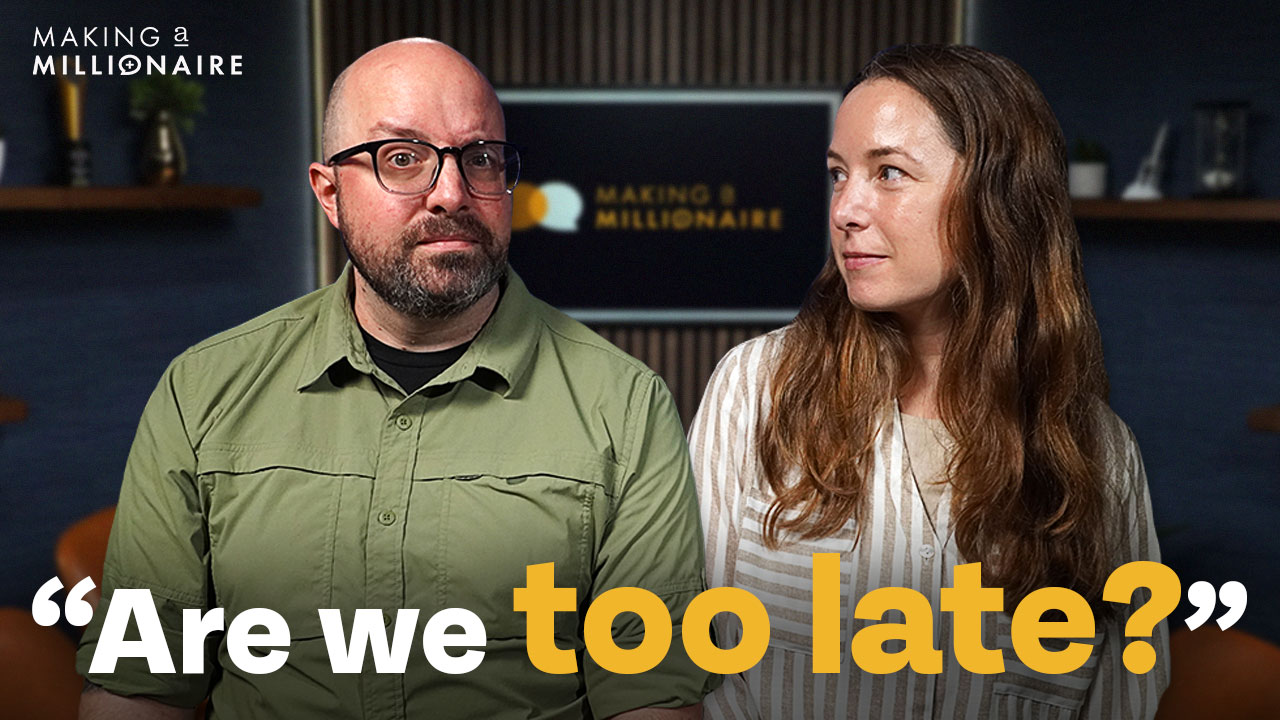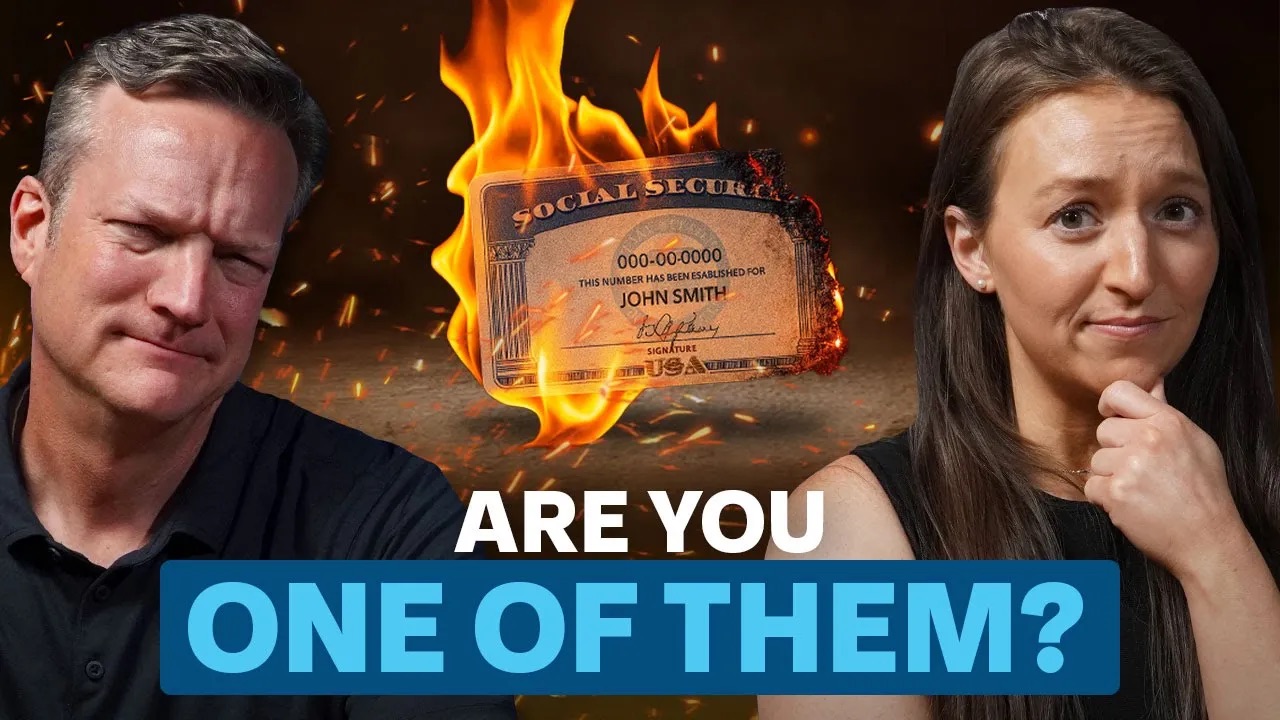We’re going to move on to Spencer’s question. It says, “It seems to me like Roth versus traditional shouldn’t be binary. Does it make sense to diversify, quote unquote, so in retirement, you can use Roth withdrawals to lower your retirement tax rate?” Yeah, this is great. You know, it’s super sexy, and this is awesome. We tell people this all the time. It’s amazing that once you get into Step Seven of the hyper-accumulation of the Financial Order of Operations—by the way, if you’d like your free copy of this, you can go to moneyguy.com/resources and download your free copy. When you download it, it will not be laminated. Or if you want to check out the course, you can go to learn.moneyguy.com and check it out.
But when you get into Step Seven, we have this idea that you build up these three distinct tax buckets. You build up your tax-deferred, you build up your tax-free, and you build up your after-tax. If you can do that, and they are robust enough that when you get to retirement, when you get to financial independence, no matter what the governmental policy is, no matter who is in office, no matter what the tax structure is, you’ll be able to pick and choose what you pay in taxes. You’re like, “Oh, that’s, but that’s no, no, no. They tell me what I pay in taxes.” No, it’s amazing. We actually have clients right now today that have multiple seven-figure portfolios and they live off of six-figure incomes. Yet they pay the lowest tax brackets because we’re able to pull some of those tax-deferred dollars out at the lower tax brackets. And then we’re able to pull out the tax-free dollars like Roth or the after-tax dollars to supplement their living expenses. So they can pick and choose how much they have. And so when you’re saying, “I don’t think that Roth versus traditional is binary,” we don’t think—I would agree with that. That’s not the way that actually works. But practically, some people have access to things that other people might not have. Like right here in the state of Tennessee, you know what we have access to? A state with no income tax, right? Not everyone lives in that environment. And so the decisions for someone who lives in Tennessee and is going to retire in Tennessee might look different than someone who lives in California is going to retire in California, even if they’re at similar income levels. The Roth versus pre-tax decision and how they might build that up and how they might plan on distributing assets may look different. Someone in the state of Georgia might look even different because of the way that retirement income is taxed for retirees in Georgia. So it is not completely binary. What we want to give you is a methodology for how you go about making that decision to at least start pointing you in the right direction to figure out what makes the most sense for you with where you are. Yeah, I mean, think about the Financial Order of Operations.
This is why it’s brilliant. I mean, I just, the more we go into it, I mean, it’s just a system. I mean, we prioritize free money. That’s going to have limits. I mean, we’d love to think our employers will give us unlimited free money, but no, it’s going to have limits. So you want to max that out. Same thing happens if you think about Step Five, Roth HSA. The government restricts how much you can put in those. They have limits. But it makes sense. Go maximize those things before they yell uncle and they’re not willing to give you any more money. But then we don’t want to walk away from tax-favored investing. So that’s why we talk about max out retirement. That’s the Roth, traditional tax-favored. So those get filled up first. But then that’s when, after you get to a point where you start asking, “Why or when do I start using? How am I going to implement my retirement plan?” The after-tax comes in, in comes in Step Seven with your three-bucket strategy. But here’s what I’ve found for managing money. Now, this is just a generalization. They go in that order. You get that, you know, take out the match, that’s Step Two. But if you, once you actually start putting your money to kind of work, that tax-free is where most people want to go first. You’re young, you’re not paying a lot of taxes yet, and you want to give that compounding interest a lot of time to grow tax-free and really stick it to our favorite taxing Uncle. The tax-deferred is, you start making more money, fills up. And then the last bucket typically is beyond your emergency reserves. Is that after-tax savings account. But what I have found, you were thinking because people make this mistake all the time. They think, “I’m going to go pull off my Roth because I won’t be 59 and a half, and it’s tax-free.” I get that access. What I have found is we actually practice, and a lot of retirees will practice what’s called LIFO. This is last in, first out, meaning the last account you funded, which is the after-tax, is typically what people will start pulling money out of first. And then they use the lower tax rates that they have in early retirement before their government mandates required minimum distributions. And we start trying to convert as much of that traditional money into Roth tax-free money while we can manipulate legally the tax rates. And then we get to that. So the last account that you even touch, it turns into your legacy holding that you want to pass on to your relatives. It’s typically the tax-free. So I mean, I see it all the time. On paper, it seems like you’re probably going to hit those Roth accounts early, but you more than likely, once you reach your super success levels, they’re so valuable that they become—it’s not right to say they’re your precious like Gollum, but they are something you really hang on because you’re like, man, there’s a reason the government is not letting me put too much money in these things because they don’t like tax-free millionaires. So I’m going to just exploit that opportunity as much as I legally can so that I gave you a little peak behind the curtain. This is why we tell people take the abundance cycle, graduate to your level of success. This is the exact type of stuff that we help people pinpoint and maximize so they can live their best retirement life.














